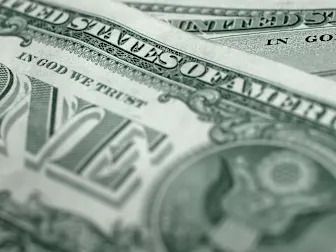This story was originally published on CFO Dive . To receive daily news and insights, subscribe to our free daily CFO Dive newsletter .
Dive Brief:
Dive Insight:
T he New York Fed survey results are more upbeat than others that highlight consumer anxiety that import levies will push up price pressures.
Expectations for inflation over the coming year rose to 6.6% last month, the University of Michigan said on May 30, noting that anxiety over tariff-induced price pressure has influenced overall confidence in the economic outlook.
The Conference Board found that expectations for average inflation during the next 12 months fell 0.5 percentage point last month compared with April, according to a survey released on May 27. But at 6.5%, inflation expectations are far above the Fed’s inflation target .
At the same time, price pressures have gradually fallen. The personal consumption expenditures price index — the Fed’s preferred inflation gauge — rose just 0.1% in April, the Commerce Department reported on May 30. On an annual basis, the PCE slowed to 2.1% through April from 2.3% in March.
Still, the Federal Open Market Committee, the central bank’s policymaking body, should keep a close eye on inflation , according to Fed Governor Adriana Kugler.
“ Progress in lowering inflation toward the committee's 2% target has slowed some since last summer, even if headline and core inflation have continued to decline,” Kugler said Thursday, noting that PCE “was dragged down by a decline in energy prices. ”
Moreover, “survey data from businesses suggest that price increases are coming,” Kugler said, noting that the surveys show that businesses face a higher cost of inputs and are raising prices.
“Manufacturing and non-manufacturing surveys from the Institute for Supply Management, as well as several surveys from the Federal Reserve banks, report increases in material prices and prices charged to customers, with many respondents volunteering that this is related to tariff increases,” she said.
While noting her larger concern about inflation than prospects for the job market, Kugler said she sees “stability in most measures of longer-run inflation expectations.”
The New York Fed found in its survey that household pessimism about the labor market softened last month.
The mean probability that the unemployment rate will rise in a year dropped 3.3 percentage points to 40.8%, the New York Fed said. The figure persisted above the trailing 12-month average of 37.7%.


